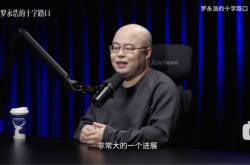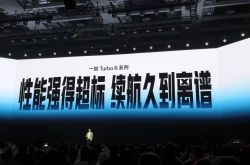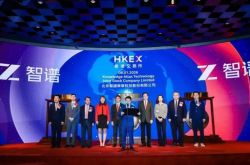Apple AI "Shells" OpenAI, Is "Inviting Foreign Aid" the Mainstream for AI Phones?
![]() 06/12 2024
06/12 2024
![]() 643
643

During the recently concluded WWDC24 keynote, Apple finally revealed the starting point of its "AI grand undertaking" - Apple Intelligent. Due to its entry-level AI capabilities within the industry, Apple invited external assistance from OpenAI, planning to integrate its advanced AI technology, ChatGPT, into the Apple ecosystem. In iOS 18, iPadOS 18, and macOS Sequoia, users can directly obtain intelligent answers provided by ChatGPT-4o through Siri, and users can also utilize ChatGPT to generate content within different applications.
Apple Intelligent is still in the development stage, and Apple will make ChatGPT available on iOS 18 and other systems later this year. Since Apple has taken the "foreign aid" AI route, some people are "frantically upset":
Tesla, X CEO Elon Musk, expressed on X that "if Apple integrates OpenAI at the operating system level, then Apple devices will be banned from use by my company. This is an unacceptable security violation," adding that "visitors must check their Apple devices at the door and then store them in a Faraday cage."
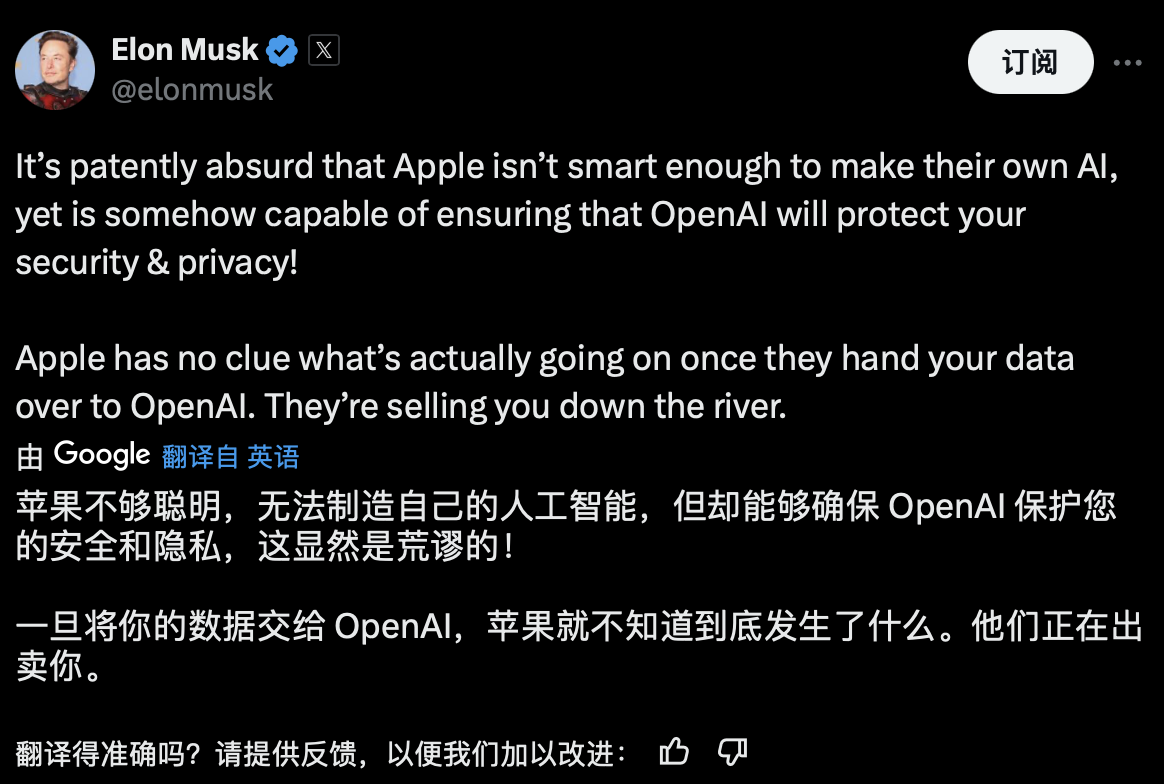
Image source: X
But obviously, in places like X that lack "friendliness," such "internet trolls" comments soon backfired. A large number of users condemned Musk's statement in the comment section, accusing "X of sending collected user data to companies related to Israeli intelligence agencies" and launching a "charge" at Musk using words like "hypocritical" and "absurd".

Image source: X
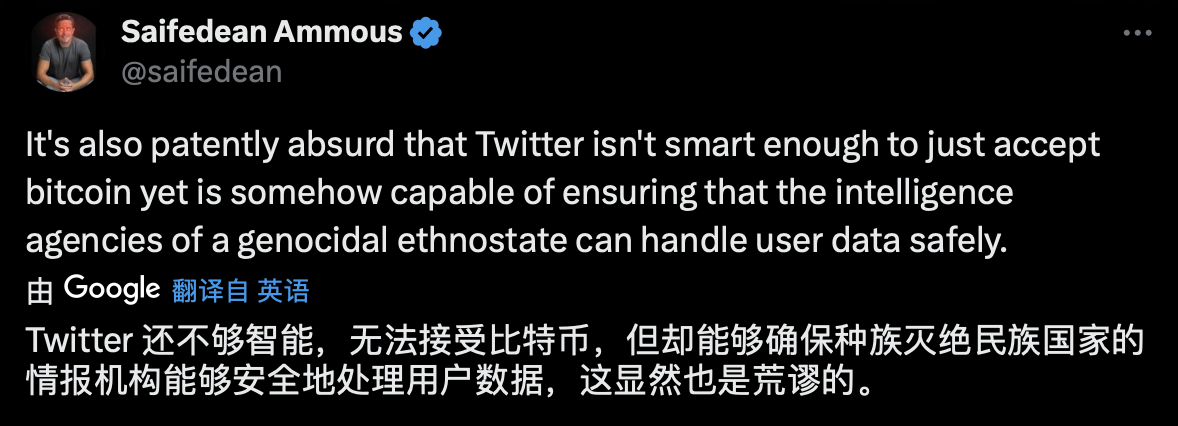
Image source: X
So, is Apple's "cooperative AI" by inviting foreign aid really so unbearable?
The Origin and Development of Apple's "Cooperative AI"
On X and Weibo, many netizens believe that Musk's anger is merely because Apple uses OpenAI's ChatGPT-4o instead of Grok provided by Musk's own xAI company. Considering that Musk himself is one of the founders of OpenAI and left the board in 2018 due to differences in opinion, we cannot rule out the possibility of "fearing that brothers drive Range Rovers."
Even if we put aside Musk's love-hate relationship with OpenAI, just from the perspective of the implementation of Apple Intelligent, Musk's argument is untenable.
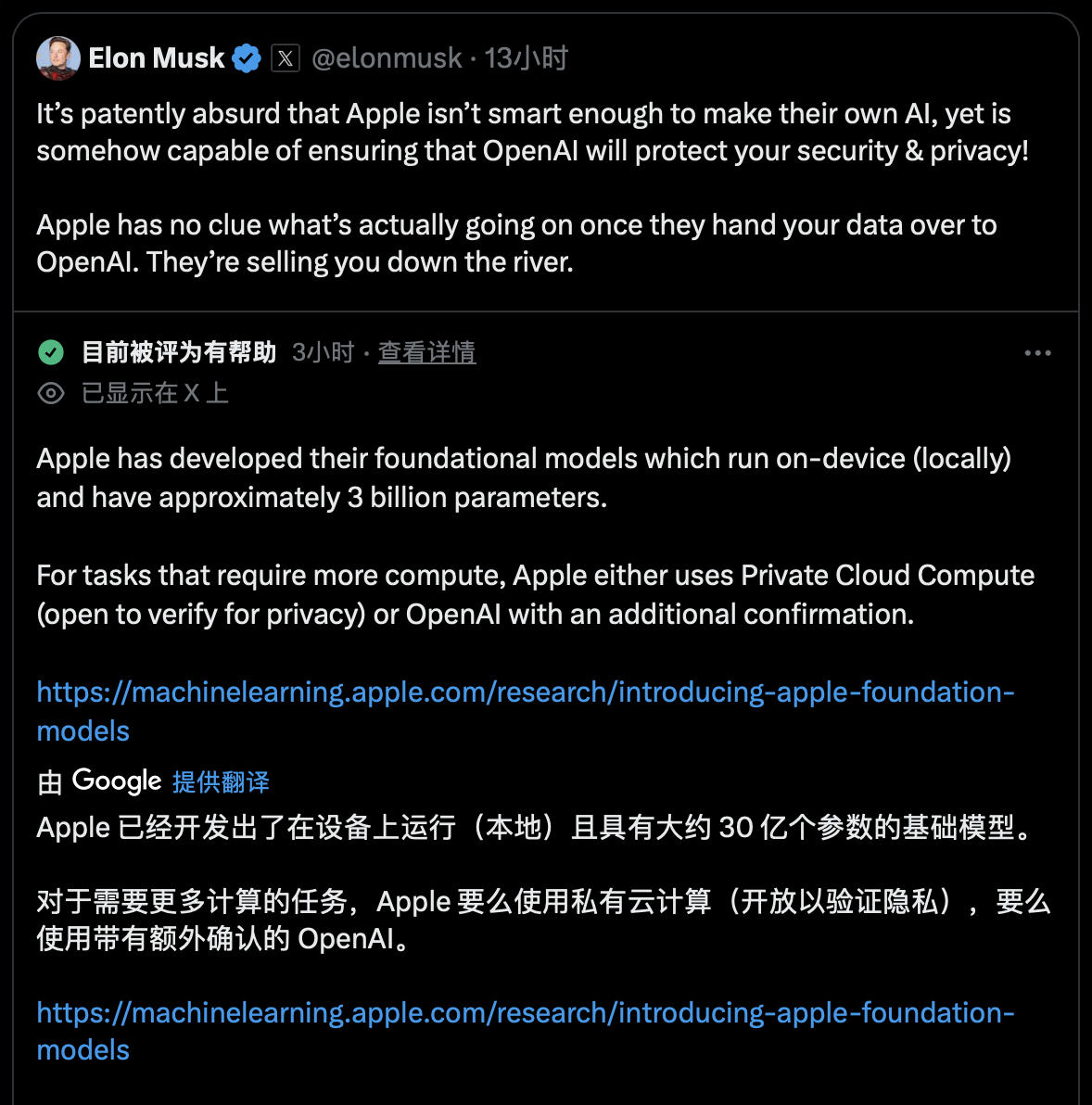
Image source: X
First, Apple does have a cooperation with OpenAI, but the cooperation method is not the "shelling" or "skin changing" described by marketing accounts.
According to Apple's technical documentation on Apple Intelligent, Apple has developed a basic model with about 3 billion parameters that runs locally on the device. User requests will first be recognized and processed locally on the device. For tasks requiring more computing power, Apple will also use private cloud computing power for calculations. If the task complexity is higher, Apple Intelligent can also hand over the task to OpenAI after processing, but it requires users to confirm twice before calling ChatGPT.
Looking at it this way, Apple Intelligent's approach of first letting the local side handle it, then letting the private cloud handle it if the local side can't, and finally handing it over to ChatGPT-4o after user confirmation if it can't be done well itself, is indeed more appropriate than X directly handing over user authentication to a company associated with Israeli intelligence agencies.

Image source: OpenAI
Of course, OpenAI is not a "white lotus" in the AI industry. In the supplementary explanation, Elon Musk also mentioned that the voice of ChatGPT-4o is too similar to that of the famous actress Scarlett Johansson:
Some users found that when using ChatGPT 4o for voice interaction, its voice was almost indistinguishable from Johansson's voice, raising questions about the legitimacy of its voice model. Johansson's legal team protested, accusing OpenAI of unauthorized use of Johansson's voice data, violating her image and voice rights.
OpenAI responded that the voice model of ChatGPT 4o was generated through extensive data training and did not specifically imitate any individual's voice. Nonetheless, OpenAI said it would re-examine its voice generation technology to ensure that it does not infringe on anyone's rights and also removed the voice line similar to Samantha from the AI industry "must-watch movie" "Her" through an update.
But speaking of which, is it really so shameful for mobile phone brands to cooperate with external AI companies and "invite foreign aid"?
AI "Inviting Foreign Aid" Is Not Shameful
Apple is not the only company to enhance its AI capabilities through cooperation. Many manufacturers in the industry are also improving their AI capabilities through cooperation. To say that only Google and Huawei, with their vast resources and both mobile and AI industries, have the confidence to achieve "fully independent research and development" of AI for mobile phones.
Due to the "division of labor in specialized fields," this external cooperation situation covers almost all major phone manufacturers. Samsung's AI phones launched in the Chinese market have Baidu's technical support behind them (Google Gemini is the partner for overseas versions).
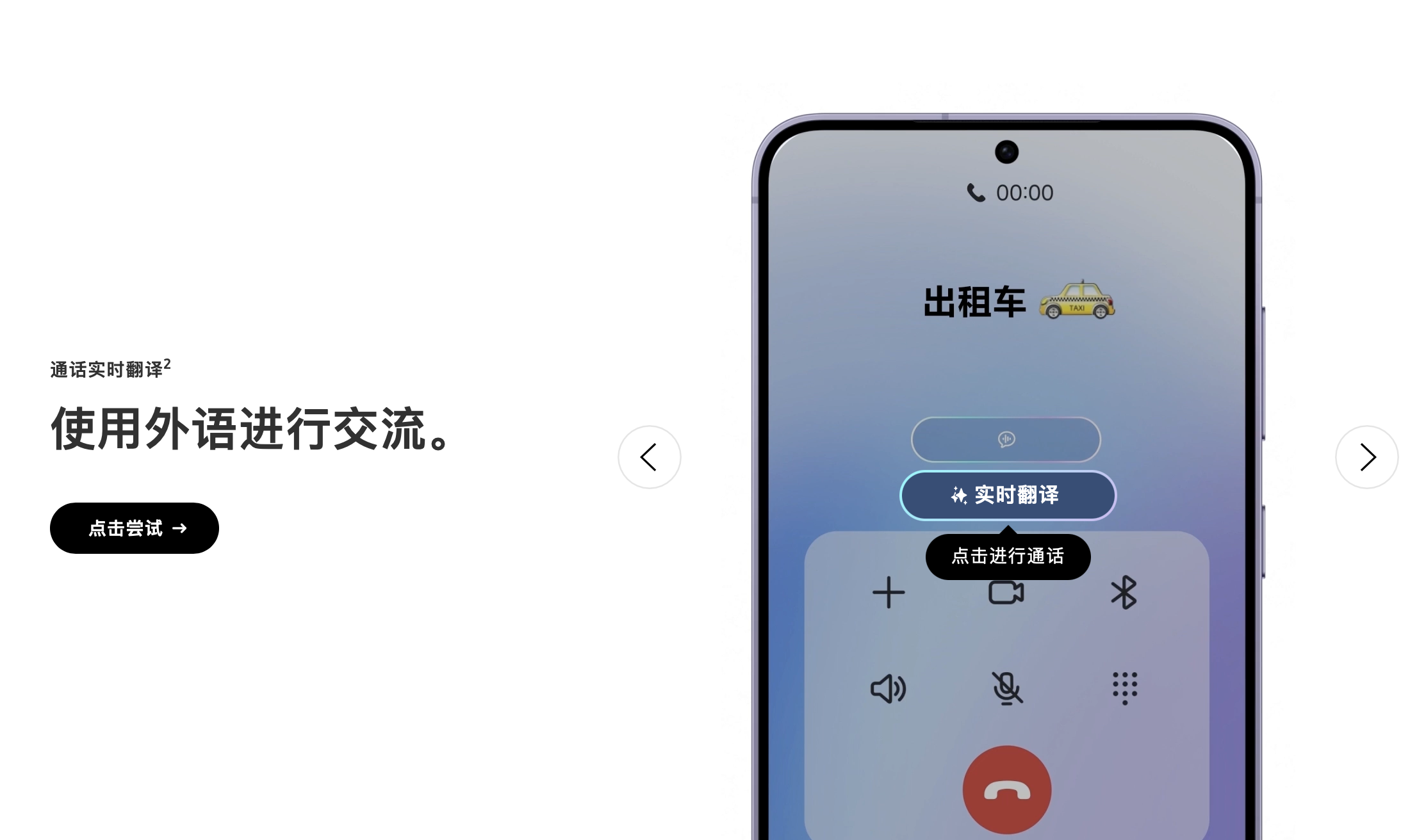
Image source: Samsung
Through cooperation with Baidu, Samsung phones have achieved significant improvements in Chinese voice interaction, image processing, etc., successfully catering to the needs of the Chinese market while also meeting the stringent requirements of AI compliance.
vivo's AI Blue Core large model has received the support of Alibaba Cloud's Tongyi large model. Through cooperation with Alibaba Cloud, vivo has enhanced its AI computing power and data processing capabilities, making its AI functions more intelligent and practical, introducing killer AI features such as AI photo editing and "vivo Vision".
There are multiple reasons behind why cooperation with external AI companies has become the mainstream:
First, it is naturally an economic choice. The complexity and high research and development costs of AI technology are the key factors driving cooperation. Developing top-tier AI technology requires significant resource investments, including high-level talent, advanced computing resources, and significant research and development funds. For many phone manufacturers, independently bearing these costs is a huge challenge. By cooperating with professional AI technology companies, they can share research and development costs and technical resources, thereby reducing development risks and investment pressure.
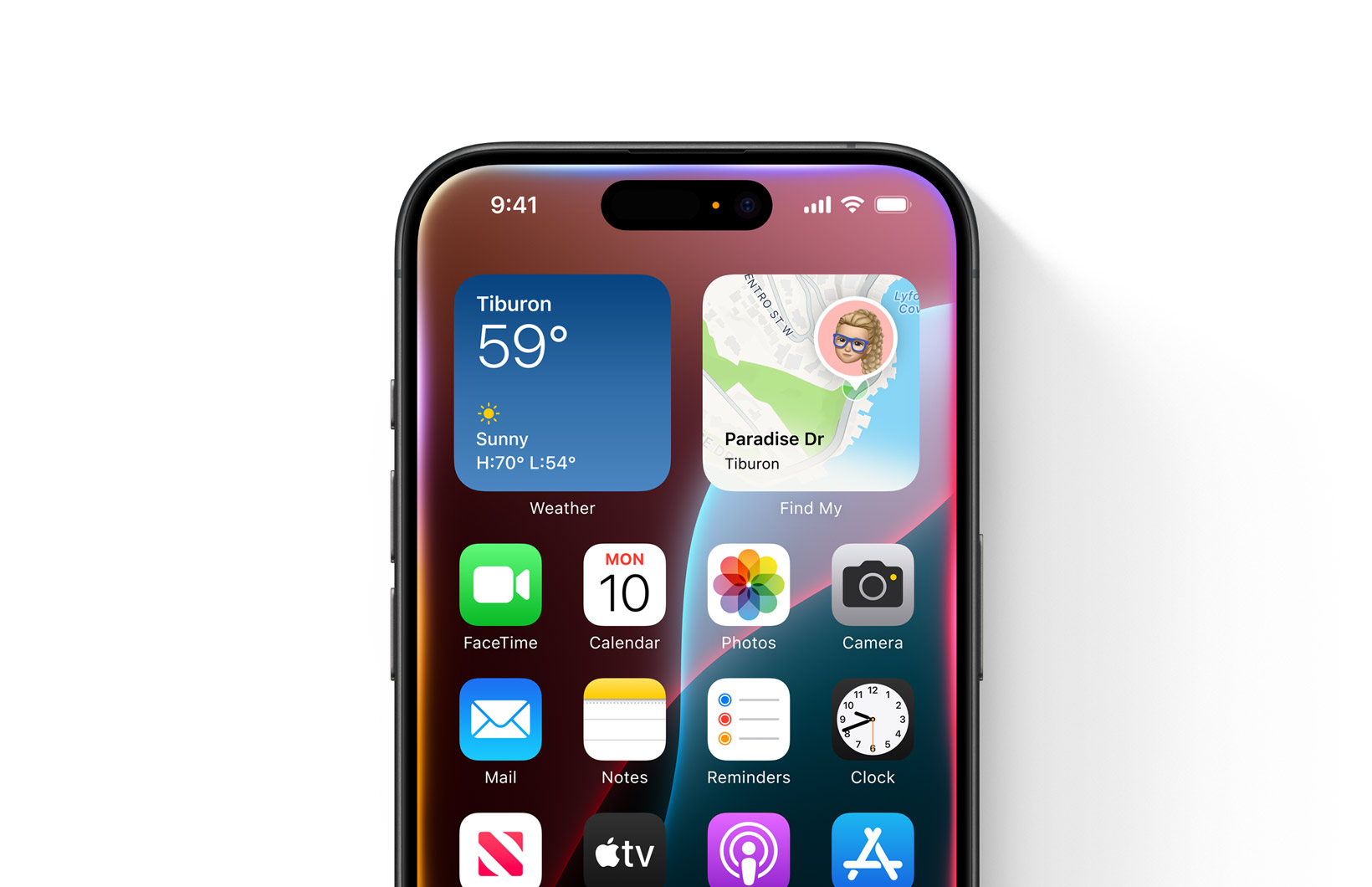
Image source: Apple
Secondly, the intense market competition also prompts manufacturers to choose cooperative AI to bring functions online as quickly as possible. By introducing advanced AI technology, manufacturers can achieve significant improvements in voice assistants, photography, user experience, etc., thereby enhancing product competitiveness. However, achieving AI technology breakthroughs solely relying on their own strength requires a long time and significant investment, making it difficult to respond quickly to market changes. By cooperating with AI technology companies, manufacturers can apply advanced technology to products faster, seizing market opportunities.
Finally, there are also considerations of localization and compliance when cooperating with external parties. Users in different regions and markets have significant differences in their demands for smartphones. For example, Chinese market users have high demands for Chinese voice recognition and localized services, while European market users are more concerned about privacy protection and data security. By cooperating with localized AI technology companies, phone manufacturers can quickly ensure that their AI functions comply with regulations in major markets, while better meeting the needs of users in different markets and improving user experience.
Apple Cannot Rely on "Lying and Making Money" Anymore
However, the cooperative AI model is not a one-stop road to wealth.
First, data security and privacy issues are a major hidden danger of the cooperative AI model. Cooperative AI involves a significant amount of data sharing and processing, especially in areas such as voice recognition and image processing, where users' personal data needs to be collected and analyzed. These data face the risk of being leaked or misused during transmission and storage. Even if some AI performs desensitization processing on user data first in the local mobile phone model, if data management is improper, user privacy may be severely violated.
This risk is particularly prominent in cross-border cooperation, as different countries and regions have differences in laws and regulations regarding data protection, which may result in varying degrees of protection for data during cross-border transmission. Manufacturers and partners need to establish strict data protection mechanisms to ensure the security and privacy of user data.
Secondly, technical dependence and the weakening of independent innovation capabilities are also major drawbacks of the cooperative AI model. By cooperating with external AI technology companies, manufacturers can quickly obtain advanced AI technology but will inevitably become dependent on their partners' technology. Long-term reliance on external technology will weaken manufacturers' own research and development capabilities and innovative motivation, affecting their autonomy and competitiveness in the technology field. If the technology roadmap of the partner changes or cooperation is terminated, manufacturers will face the risk of technology disruption and product development stagnation.
Looking at it this way, Apple's choice of the "cooperative AI" route is also a last resort. For years, Apple has been accustomed to "lying and making money," with no significant technological breakthroughs after the A processor, only making incremental improvements like squeezing toothpaste out of a tube. Not only are products lacking in innovative breakthroughs, but they are also negligent in the layout of AI, autonomous driving, and other technologies. Apple's reluctance to invest in cutting-edge technologies has allowed it to maintain industry-leading profit margins, but now it has suffered the consequences. After cutting its automotive business and focusing on AI, it is too late to fix the problem and can only resort to foreign aid. Will Apple learn from this lesson?
Users Are Always the Center of AI
But ultimately, whether it's independently developed AI or AI technology introduced through cooperation, the ultimate goal is to enhance user experience, create new value, and break through the traditional boundaries of smartphone functions to truly achieve a leap in intelligence. Whether it's Google's integrated self-developed AI or cooperative AI with external companies, embracing AI for mobile phones has become an industry consensus.
According to market research data from Statista, user satisfaction with smartphones equipped with AI functions has significantly improved: the frequency of voice assistant use has increased by 30%, with 60% of users indicating a significant improvement in the accuracy and response speed of voice assistants; AI-assisted photography has improved photo quality by 40%, and user satisfaction with the photography experience has increased by 50%. These data fully demonstrate that AI technology is profoundly changing the user experience of smartphones.
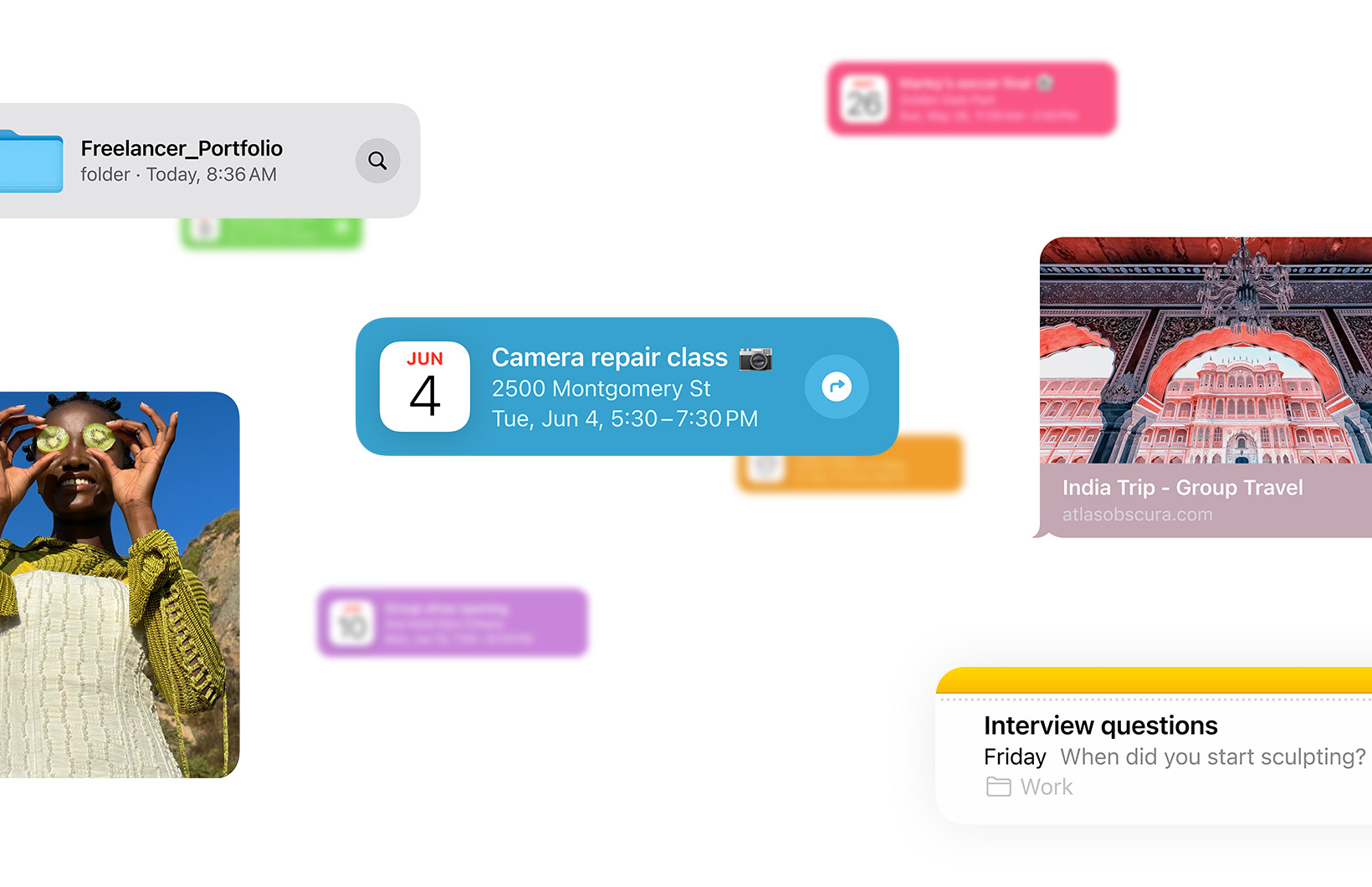
Image source: Apple
By introducing AI technology, smartphones can not only provide more intelligent and convenient services but also create more business value and market opportunities. It is certain that AI phones will become the mainstream in the market in the future, bringing more innovations and surprises, leading the smartphone industry to new heights.
Anyway, regardless of how Apple's AI iPhone and Apple Intelligent perform, Apple has repeatedly proven with its actions the direction of the trend: the mobile hardware industry and even the world must embrace AI.
Source: Leikeji


